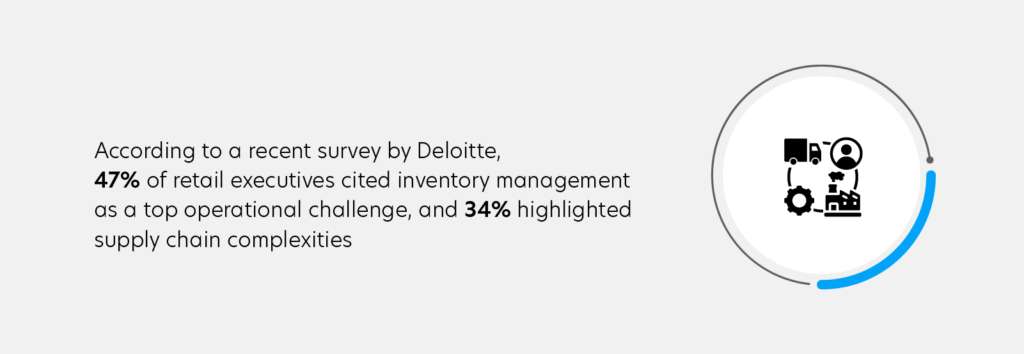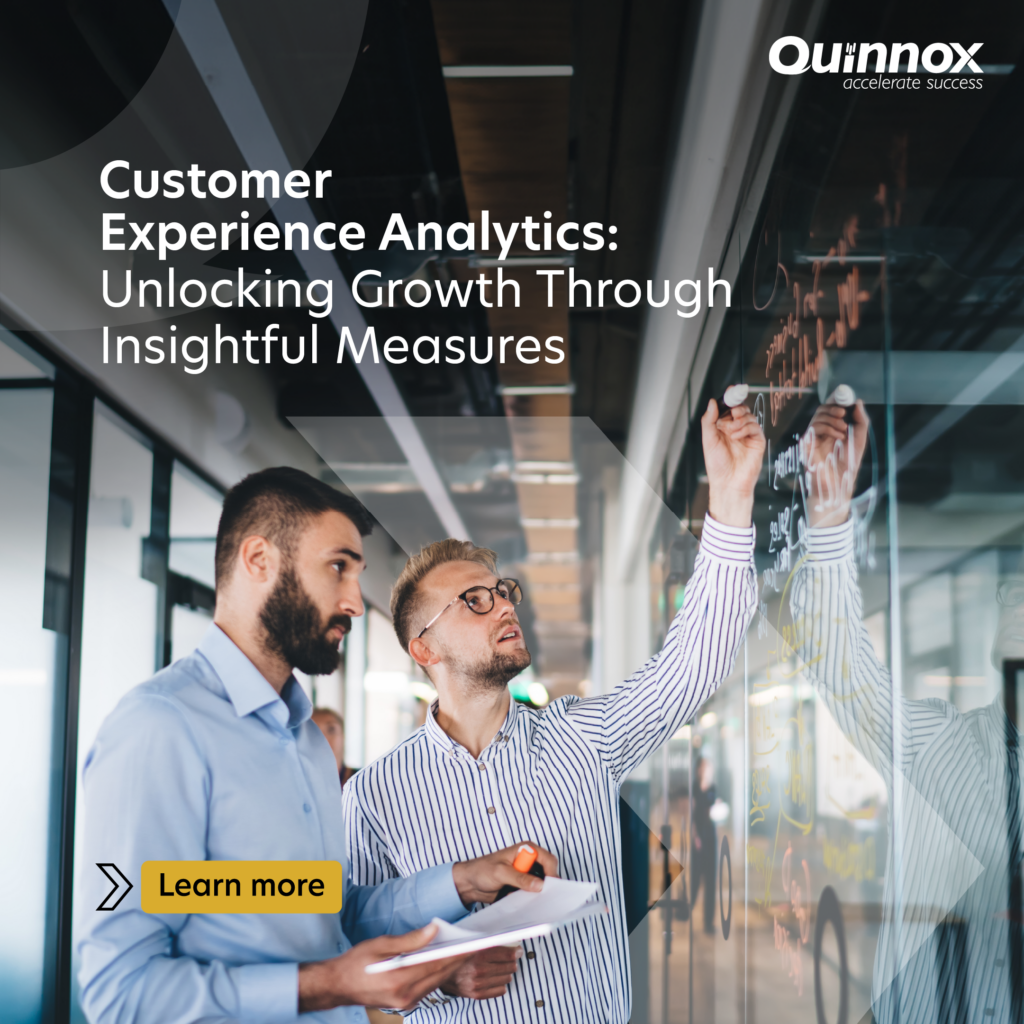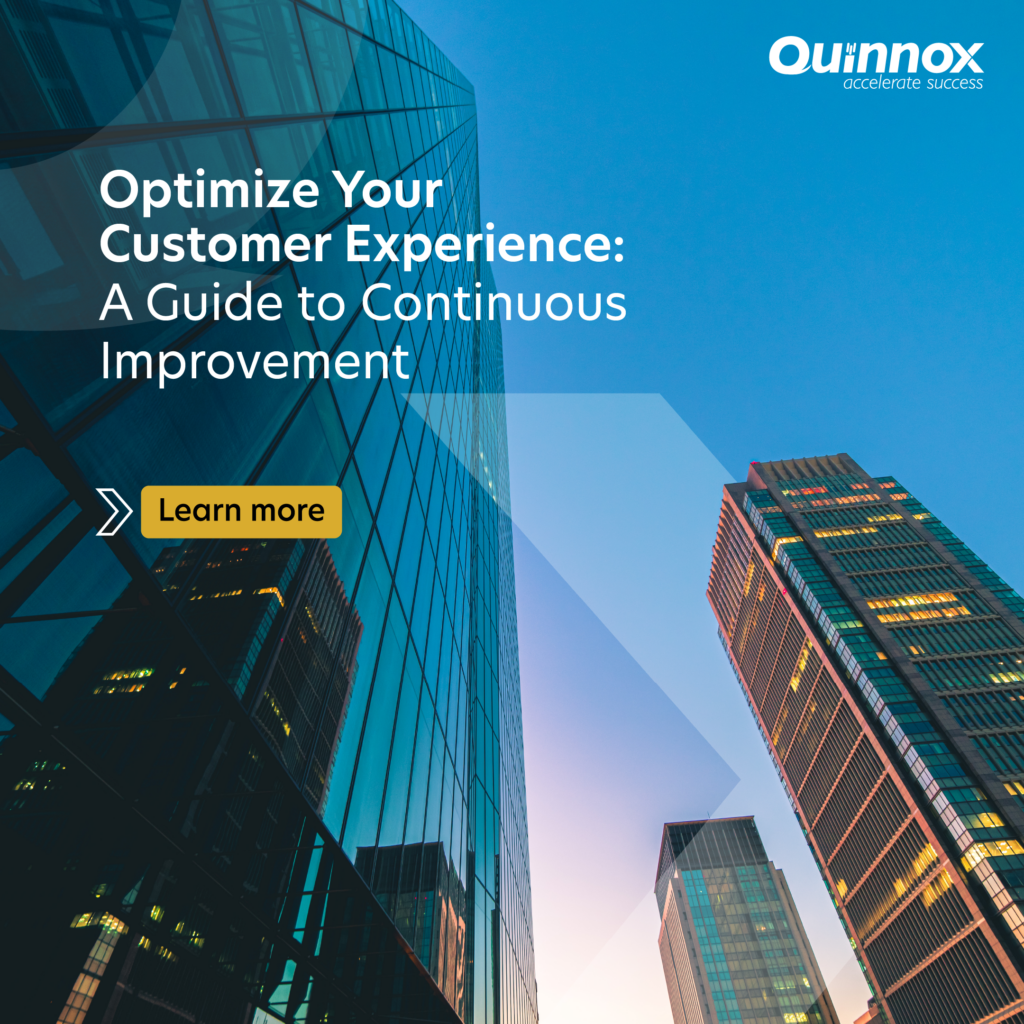Running a retail operation is no walk in the park. COOs in the retail sector face numerous challenges in their quest to ensure smooth operations and deliver an exceptional customer experience (CX). From inventory management and supply chain logistics to workforce optimization, there’s a myriad of elements that require careful orchestration. The ever-evolving consumer demands and the dynamic nature of the market only add complexity to the role.

One of the central challenges for COOs is to streamline operations in a way that not only minimizes costs but also enhances the overall customer journey. The need for real-time insights, actionable data, and predictive analytics becomes crucial in addressing these challenges. This is where retail analytics steps in as a game-changer. By harnessing the power of data, retail COOs can optimize operations and create a CX that not only meets but exceeds consumer expectations.
The Imperative of Data-Driven Operations in Retail
Retail analytics, powered by advanced technologies such as machine learning and artificial intelligence, empowers COOs to harness the vast amounts of data generated across various touchpoints. This data encompasses customer behavior, inventory levels, sales patterns, and even external factors like market trends and economic indicators. By embracing data-driven operations, COOs can gain a competitive edge by responding promptly to market shifts and consumer preferences.
Retail analytics leverages both historical and real-time data to uncover patterns, trends, and correlations. By analyzing customer preferences, purchasing behavior, and market trends, COOs can make strategic decisions that directly impact the bottom line.
According to a report by McKinsey, companies that leverage data and analytics in their operations are five times more likely to make decisions faster than their competitors. This speed of decision-making is crucial in the fast-paced retail environment.
Retail Analytics - The Key to Optimization
- Understanding Customer Behavior:
Retail analytics opens a treasure trove of insights into customer behavior. By leveraging data from various touchpoints – online and offline COOs can gain a comprehensive understanding of what drives consumer choices. This includes preferences, purchasing patterns, and even factors like seasonality. Analyzing this data allows COOs to tailor their inventory, marketing strategies, and even store layouts to align with customer preferences.
For example, if data reveals a surge in online purchases during specific hours, then one can allocate more resources to ensure the online platform remains robust during those times. Understanding customer behavior enables the personalization of the shopping experience, enhancing customer satisfaction and loyalty. - Inventory Management:
One of the most significant challenges for retail COOs is managing inventory efficiently. Retail analytics provides a comprehensive solution by offering insights into inventory turnover, identifying slow-moving items, and predicting demand fluctuations. By optimizing inventory levels, businesses can minimize stockouts, reduce holding costs, and enhance overall operational efficiency.
According to the National Retail Federation (NRF), inventory shrinkage accounts for $50.6 billion in losses for retailers annually. Retail analytics can help identify the root causes of shrinkage and implement preventive measures, saving significant revenue. - Supply Chain Optimization:
The supply chain is the backbone of retail operations, and any inefficiency can have a cascading effect on the entire business. Retail analytics enables COOs to gain visibility into the entire supply chain, from sourcing raw materials to delivering the final product to the customer.
By leveraging predictive analytics, COOs can anticipate disruptions, optimize routes, and enhance collaboration with suppliers. This not only reduces lead times but also ensures a more responsive and agile supply chain. - Workforce Optimization:
Efficient workforce management is crucial for a seamless customer experience. Retail analytics can help COOs optimize staffing levels based on historical data and predicted foot traffic. This ensures that there are enough staff members to assist customers during peak hours and avoids overstaffing during slower periods.
Additionally, analytics can be employed to identify training needs and performance improvements among the workforce enabling COOs to invest in targeted training programs. This not only improves employee satisfaction but also contributes to a more knowledgeable and efficient workforce. - Pricing and Promotion Strategies
Dynamic Pricing and running effective promotions are essential aspects of retail operations. Retail analytics allows COOs to set optimal prices based on factors such as demand, competitor pricing, and historical sales data. This ensures that prices remain competitive while maximizing profit margins.
Analytics tools also provide insights into the effectiveness of promotional campaigns. By analyzing the impact of promotions on sales, COOs can fine-tune their promotional strategies, allocating resources to initiatives that deliver the best results. This data-driven approach to pricing and promotions helps in maximizing revenue and maintaining a strong market position.
While retail analytics promises immense benefits, it’s essential to acknowledge the challenges associated with its implementation. Data security, integration of disparate systems, and the need for skilled personnel are common hurdles that COOs may face. However, with strategic planning and investment in the right technologies, these challenges can be overcome.
Best Practices for COOs to Implement Retail Analytics
Implementing retail analytics successfully requires a strategic and thoughtful approach. Here are some best practices for COOs to harness the power of retail analytics:
- Invest in Right Technologies: Choosing the right analytics tools is paramount. COOs should invest in technology that aligns with their specific business needs and integrates seamlessly with existing systems. Cloud-based analytics platforms, with real-time capabilities, offer the agility required to respond quickly to changing market dynamics.
- Establish Cross-Functional Collaboration: Retail analytics is most effective when it’s not confined to the operations department alone. COOs should foster collaboration between different departments such as marketing, sales, and finance. By breaking down silos and sharing data insights, the entire organization can work cohesively towards common goals, leading to a more seamless and customer-centric operation.
- Prioritize Data Security and Compliance: As retail operations become more reliant on data, ensuring the security and compliance of this information is paramount. COOs must implement robust data security measures and adhere to industry regulations to safeguard customer information and maintain trust. This includes investing in secure data storage, encryption, and regularly updating cybersecurity protocols.
- Continuous Training and Skill Development: Implementing retail analytics successfully requires a skilled workforce. COOs should prioritize continuous training and skill development for their teams to ensure they can effectively use the analytics tools at their disposal. This may involve bringing in external experts for training sessions or encouraging employees to pursue relevant certifications.
- Monitor and Evaluate Performance: Retail is a dynamic industry, and what works today may not be as effective tomorrow. COOs should continuously monitor the performance of their analytics strategies and be willing to adapt and refine them as needed. Regular reviews and updates ensure that the organization remains agile and responsive to market changes.
Wrap Up
In the age of digital transformation, businesses that harness the power of analytics are better positioned to create value and deliver exceptional customer experiences. As retail operations evolve, COOs must embrace innovation and leverage analytics tools that provide deep insights into customer behavior, inventory management, and overall business performance. By doing so, they can make informed decisions that drive efficiency, enhance the customer journey, and ultimately contribute to the long-term success of their organizations.
Are you looking to elevate your retail operations to new heights with the power of data and analytics?
At Quinnox, we understand the intricate dynamics of the retail landscape, and we are poised to guide you through this revolutionary journey. Our expertise in leveraging cutting-edge analytics solutions can empower you to optimize your operations, personalize the customer experience, and achieve sustainable success in the ever-evolving retail landscape.
The future awaits, and Quinnox is here to make it happen. Connect with us Today!
Explore more on elevating your customer experience journey!



